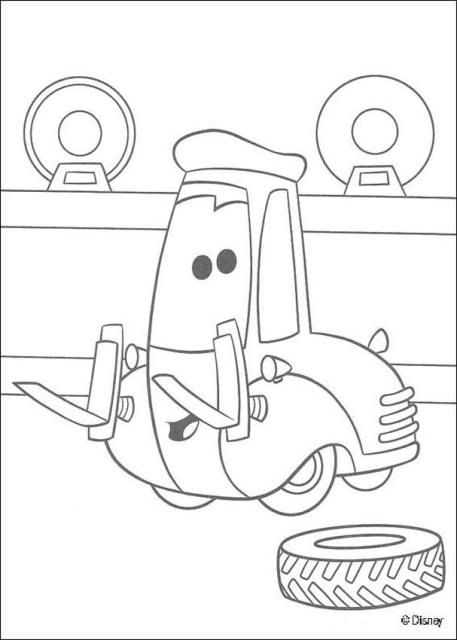Greetings Friends in the Name of Safety:
As mentioned last month, we have decided
to cancel all of our APCAP courses for
this year except the Smithfield and
Asheboro Zoo classes due to travel
restrictions.
You
may register online for the SMITHFIELD
course June 15 - 19, 2009 by
CLICKING HERE.
You
may register online for the ASHEBORO ZOO
course October 26 - 30, 2009 by
CLICKING HERE
The
79th Annual Statewide Safety Conference
May 12 - 15, 2009 at the Joseph Koury
Convention Center in Greensboro is just
about here. We are asking that you help
us keep this Conference "free" by making
your hotel reservations at the Koury
Convention Center if at all possible.
In order to keep the charges for meeting
space at a minimum, we need your
support.
We have moved the
SAFETY TALK CONTEST to Wednesday
morning this year to help you get more
value for the day as well. NETWORKING
is always rewarding at our Vendor
sponsored Reception Wednesday evening
from 5:00 p.m. until 7:30 p.m.
By
CLICKING HERE you can pre-register
for the conference and download and
PRINT the program to show your boss
why they can't afford not to send you to
this conference this year. There's no
better way to face the challenges of
2009!
We look forward to a great conference
and hope to see you there!
|
Conquering Conflict

Conflict is not
unique to any workplace; in
fact, in almost any situation in
which people with different
backgrounds and opinions come
together, there are likely to be
disagreements and differences in
priorities.
One of the worst ways to handle
interpersonal issues is to
ignore them. In fact, the longer
a situation is allowed to
continue, the more it may fester
and become even bigger,
involving more employees and
affecting morale. If you find
yourself at odds with another
employee, consider collecting
your thoughts and approaching
the person calmly - a heated
conversation will rarely make
any progress.
During the conversation, be sure
to consider your role in
creating the conflict instead of
making accusations of the other
person, and remember that a calm
conversation may uncover a mere
misunderstanding. If it turns
out that an agreement cannot be
reached, at least you'll know
which topics of conversation to
avoid to prevent future
conflict.
|
Regional Safety Councils

Please do not forget to support your
Regional Safety Councils by joining
their membership ranks and
participating in their scheduled
events. For membership
applications, see the Quick Links to
the right.
|
Life After Layoffs
More than
200,000 workers have already lost
their jobs since 2009 began, and it
seems that every day's news brings
with it disheartening information
about record unemployment figures
and company layoffs. Unfortunately,
when it comes to layoffs, those
employees who have lost their jobs
aren't the only ones suffering.
Layoffs can also be extremely hard
on employees who remain in the
workforce after others have been let
go. Surviving employees have to deal
with the emotional stress of
watching their coworkers lose their
jobs and the fear that they could be
next. Surviving employees may also
find themselves inheriting
additional job duties, which can
also cause increased stress.
If you've survived a layoff and
you're feeling guilt, stress, or
just general unease, know that
you're not the only employee out
there that feels that way. However,
you might also want to be aware that
focusing too much on a past layoff
or the potential for a future layoff
is not the best way to keep from
being eliminated in the future.
One of the best things you can do is
to take a good look at your job and
see where you can be more
productive. Can you save resources?
Is there a task you can do more
efficiently? Are there skills that
you could learn that would make you
more valuable to the company? Any
ideas that you might have to save
the company time, money, and
resources could be extremely
valuable in this type of economic
climate.
With the increased stress of a
post-layoff situation, it's also
important to make sure that you take
care of yourself. As you may find
the need to demand more from your
mind and body in order to keep up
with work and also to keep your
spirits up, it's one of the worst
times to neglect your diet,
exercise, sleep, and mental health.
Furthermore, don't let the stress
you may be feeling keep you from
enjoying your everyday life.
Continuing to do the things you
enjoy will help you to maintain a
more positive attitude and keep your
self-esteem up, even during a
difficult time.
|
NCIC Video
Library
Check out our
Video Library !
View our
online Video/DVD listings. The new
listings are in
RED.
To view the rest of our Library and
download the REQUEST FORM, please
CLICK HERE
|
Forklifts vs Cars

Contrary to some
people's beliefs, driving a forklift
is not the same as driving a car,
and forklift operators need to be
sure to learn the differences
between operating the two vehicles.
Forklifts may look small, but they
can weigh more than twice as much as
a car. This kind of weight is
necessary for lifting heavy loads.
Much of this weight is located in
the large counterweight on the back
of the forklift which exists to
balance the load being carried.
While cars steer by turning the
front wheels, forklifts steer with
the rear wheels, giving it a tighter
turn radius, but also causing the
back end of a forklift to swing
wide. Forklift operators need to
take care to ensure that there is
enough clearance for the truck's
back end during a turn.
Automobiles use a four-point
suspension system. Forklifts,
however, use a three-point
suspension system. This creates
stability between the front tires
and the center of the rear axle. A
forklift will tip over if its center
of gravity moves outside this
"stability triangle" as it lifts and
lowers loads, accelerates, brakes,
and turns.
The forklift's identification plate
includes much more information than
is contained on the license plate of
a car. You can find the unloaded
weight of a forklift, its load
capacity, its load center distance,
its type designation, and
information about its engine all on
a forklift's identification plate.
To complicate matters, there are
several different types of
forklifts, and each different type
has different controls and brings
with it a different set of hazards.
Since driving a forklift is not just
like driving a car, you should be
careful to obtain proper education
about any forklift you are required
to operate.
|
|
Hidden
Treasures
By Michael Nance
It's springtime again. I
always enjoy being able to get out into
the yard and the general outdoors to
exercise in the warm sun with the cool
breeze. After being cooped up inside
during the winter months, those undone
projects start to call my name. Let's
see, what is on the agenda this season:
- Remove trees
damaged by the snow storm.
- Move a 10 by
16 deck to the other side of the
backyard.
- Construct a
new dog house.
- Rearrange the
garage so I can find missing
items.
- Plant some
new shrubs in the front yard.
- Till up a
section of the property for a
summer garden.
- Inventory the
camping supplies.
Wow, I better get busy. There's a lot
to do on my list and I haven't listed
but a few that just popped up. Some of
these projects are carry-overs from last
year. I dare not put something down
that I'm not sure I will accomplish
soon. My wife reads this newsletter
too. With these projects comes the
renewed awareness of accident
prevention. I read recently that 81
percent of injuries with powered hand
tools occur in the home, not at work.
Could the reason be is that we are our
own "safety director" at home? Probably
so.
At work, we have supervisors, managers,
co-workers, safety meetings, etc. that
remind us to do things safely. Not only
is it a requirement but it's also a
source that reminds us on a daily
basis. Even if we've doing it for
years. With the economy still a major
issue, many of us will mostly likely try
to repair tools and machinery rather
than go out and buy new stuff. This
means taking the time to do it right.
For example, you can seriously injure
your hand trying to sharpen lawn mower
blades without gloves. There are many
ways to accomplish this task, but only a
few safe ways. Since there are many
different styles of mowers, there isn't
a one size fits all approach. Check
your manufacturer's procedure.
If one of your tasks is to finally get
into that attic and decide that climbing
over everything to get what you want
needs attention, then you're not alone.
This is perhaps my "top of the list"
item. There are some important things
to consider. Wear a dust mask. Not
only for the obvious reason, "dust"; but
for loose insulation that can become
airborne. Depending on your attic, you
may need to wear safety toed shoes.
Loose nails/screws will easily poke
through the sole. Let's not forget
gloves, long pants and a long sleeved
shirt. Ever get small bits of
insulation on your skin? Not an easy
thing to remove is it. An important
reminder is to not forget about
hydration. Even if the temperature is
cool is that musty place, you can work
up a sweat and require fluid
replenishment. Take frequent breaks.
Some areas that I will need to access
will require me to lie flat on my
stomach. (I need to relocate some
ductwork) A final point is to be careful
when leaving the attic space and not
track harmful materials throughout the
rest of the house.
Realize that some tasks such as cleaning
out an attic may take several days.
Remember those words of "speed, ease,
and comfort"? Usually one of those
words is a cause of injury. Don't rush
things and if the spouse complains that
it's taking too long or that you're
disrupting the house, ask them to don
the PPE and start helping. One of two
things will happen. They actually will
help and you can get the job done
allowing you to move to the next items
on your list, or they will see that it's
not as easy as it appears. If they do
help, remember to have a safety
briefing. They may not be aware of some
hazards that you identified.
We all have many springtime things on
our lists to take care of. You are your
own safety director in the home. If
something begins to get out of hand or
you realize that you're over your head
with a project, get someone with more
knowledge to help. You've heard the
phrase, "Spend a little now or a lot
later".
Have fun cleaning out your attic (or
basement) and remember to take
precautions. Be careful where you step,
wear the PPE, lift carefully and
properly, have a plan. If you haven't
thought about doing this, perhaps you
will now. You might find some hidden
riches to sell on eBay or at a yard
sale. My wife and I try to actually
have our Christmas gift list completed
by Labor Day. Buying one or two things
throughout the year doesn't hurt our
budget quite as bad, however I like to
make homemade gifts or share things with
family they haven't seen in years. You
might find some old family treasures in
the attic or basement and begin to
refurbish them over the summer for some
great memorable gifts. With only
spending money for cleaning supplies,
your Christmas budget could turn into a
nice beach get-away for yourself.
Editor's note: Michael Nance is the NCIC
Blue Ridge, Southern & Western Piedmont
areas Safety Representative. If you are
interested in having one of our programs
in your area, please give Michael a call
at 919-218-9047 or email him at
Michael.Nance@ic.nc.gov
|
From the Desk
of Dennis
Parnell

Director Safety Education
BTW...Distracted driving isn't safe!
Most everyone knows the
dangers of being distracted while
driving, and yet many people still
attempt to use driving time to
accomplish other tasks such as talking
on the phone, eating, applying makeup,
and even reading the paper. All of these
activities drastically increase a
person's chances of causing an accident
on the road, and one of the newest
distractions for drivers is text
messaging.
According to a Nationwide Insurance
Study, an estimated 20 percent of
drivers are using their phones' text
messaging features to send and receive
messages behind the wheel, with 16 and
17-year-olds belonging to the group that
is most likely to text and drive.
A handful of states already have
legislation to make texting while
driving illegal, but the lack of such a
prohibition shouldn't outweigh your
common sense.
Anything that causes you to take your
eyes off the road - even briefly - is a
dangerous practice, and it's simply not
worth the risk.
Please give Mel or Alvin
a call today for Defensive Driving
training.
Now you know. Dennis :)
|
Insight!
Fun and useless tidbits

-
Average number of
squirts from a cow's udder needed to
yield a gallon of milk : 345.
-
Cats average 16 hours
of sleep a day, more than any other
mammal.
-
During pregnancy, the
average woman's uterus expands up to
five hundred times its normal size.
- Every square inch
of the human body has an average of
32 million bacteria on it.
- Humans shed about
600,000 particles of skin every hour
- about 1.5 pounds a year. By 70
years of age, an average person will
have lost 105 pounds of skin.
- In 1900 the
average age at death in the US was
47.
- On average women
say 7,000 words per day. Men manage
just over 2000.
|
The
Effects of Coffee

How many times have you heard that a
food or drink is astoundingly good for
you, only to hear days (or minutes!)
later that consuming that particular
item can be hazardous for your health?
Well, unfortunately, millions of
people's morning pick-me-up is on that
list of items that are - but are not -
good for you.
There are well over 100 million coffee
drinkers in the United States, many of
whom start their workdays with a cup of
their favorite brew. Unfortunately,
according to some studies, excessive
coffee drinking (five or more cups per
day) can come with a heavy cost. Some of
the most commonly reported consequences
include: addiction, sleep troubles,
anxiety, depression, irregular
heartbeat, high blood pressure, ulcers,
headaches, and infertility.
But before you boycott the coffee shop,
you might want to listen to the argument
from the other side. Coffee is
Americans' best source of antioxidants,
a compound that protects your body from
disease and can ward off cancer, heart
disease, diabetes, and stroke. Harvard
researchers have analyzed coffee
drinkers for more than 15 years, coming
to the conclusion that men and women who
drank six or more cups of coffee per day
slashed their risk of diabetes by 54
percent and 30 percent, respectively, as
compared to non-coffee drinkers.
Other studies have concluded that
regular coffee drinkers are also
considerably less likely to develop
Parkinson's disease, colon cancer,
cirrhosis of the liver, and gallstones.
There's also some evidence that coffee
may help manage asthma and can even help
control asthma attacks in the absence of
medication. Coffee has also been
reported by some studies to help stop
headaches (even though other studies
cite coffee drinking as a cause of
headaches) and prevent cavities.
All this contradictory information may
leave you wondering whether coffee is
truly a "superfood" or whether it's
harmful to your health. Unfortunately,
the answer might be that it's actually
both - and you simply have to take the
bad with the good.
|
 What
Kind of Leader Are You? What
Kind of Leader Are You?
Every leader has
different strengths and weaknesses that
contribute to forming their leadership
style. There are many leadership styles
that have been identified by consultants
and experts in the field. Two common
types from opposite ends of the spectrum
include:
1) Micro-manager (autocratic
style)
2) Hands-off manager
(laissez-faire style)
Micro-managers do not allow direct
reports to use their own judgment, but
insist that everything be run past them
first. They exert high levels of control
over their employees, who are given few
opportunities to make suggestions. It is
often demeaning and frustrating for an
employee to be treated as if he is not
able to handle assignments on his own,
and this type of management style can
lead to unhappy employees who feel they
are not trusted to know their jobs.
Micro-managers are often a big reason
for a high rate of turnover.
On the other end of the spectrum are
hands-off managers, who go to opposite
extremes by giving direct reports free
reign - often without offering any
feedback or providing any control.
Although it may work for some
experienced and knowledgeable
self-starters, it can be problematic
when managers fail to take charge when a
clear leader is needed.
The most effective style is probably
somewhere in between the autocratic and
laissez-faire styles. A manager who
allows for creativity and responsibility
but still remains engaged with employees
is typically the most effective style,
and is also likely to allow subordinates
to function at their highest levels. A
good leader is adept at reading
different circumstances and responds
according to each particular situation.
There is no one management style that
works for everyone or in every
situation. The best way to manage is to
try to balance what is best for each
individual situation as well as for the
people being led.
|
You're Allergic to What?

About 20 percent
of Americans are affected by allergies
caused by any number of everyday
exposures (called allergens) ranging
from specific foods and medications to
pollens and pet dander. While children
aren't likely to inherit specific
allergies, the tendency to be allergic
is thought to be genetic.
Allergies exist when a person's immune
system reacts abnormally to a particular
substance. Basically, the body falsely
identifies allergens as a threat,
causing the body to produce allergen
fighting antibodies, which ultimately
trigger the release of chemicals
including histamine - leading to allergy
symptoms.
Common, but mild allergy symptoms
include sneezing, itchiness, watery
eyes, or a runny nose.
In rare cases, a person's reaction to an
allergen can initiate a life-threatening
situation in which the entire body is
affected. This is called anaphylaxis,
and may include trouble breathing,
abdominal pain, vomiting, mental
confusion or dizziness.
Allergens in the air are most likely to
cause reactions in a person's eyes,
nose, and lungs, while an allergen that
is ingested is most likely to cause a
reaction in a person's mouth, stomach,
and intestines. For example, an asthma
attack might be a reaction when
allergens like pollen or dust are
breathed into the lungs. Likewise, a
person with a peanut allergy might
experience an itchy mouth or become
nauseous upon ingesting the allergen.
In many cases, avoiding an allergen is
one of the best (and sometimes the only)
ways to deal with allergies, so knowing
exactly what you're allergic to is key.
Over-the-counter and prescription
medications are also available to help
ease mild allergy symptoms, and allergy
shots (which can increase a person's
tolerance for a particular allergen) are
also available in some cases.
People are allergic to all kinds of
things, but while you might expect to
hear about allergies to mold or bee
stings, you might find some of the other
allergens listed here to be a bit
surprising.
- Food: Common food
allergies include dairy products,
eggs, wheat, soy, peanuts, and
seafood.
- Environmental
allergens: The most common
allergens, these airborne particles
include dust mites, mold spores,
animal dander, and pollen. People
who are allergic to environmental
allergens are often said to have
"hay fever," which can be a problem
year round, or can act up at
specific times of the year.
- Insect
bites/stings: Over two million
Americans are allergic to stinging
insects, and have allergic reactions
to bee stings, mosquito bites, or
spider bites, for example. In some
cases, these allergies can be quite
severe, and can force a person to
carry with them an emergency kit in
case of a bite or sting.
- Medicines: In
some cases, the very medicines that
are meant to get you healthy could
actually make you sick. Penicillin
and other antibiotics are allergens
for some people.
- Chemicals:
Chemicals found in dyes, household
cleaners, pesticides, cosmetics, or
laundry detergents can all cause
people to have an allergic reaction.
- Sunlight: Though
rare, an allergy to sunlight is
possible in which direct sun
exposure can cause a rash, hives, or
even nausea.
|
What Folks Are Saying...
Michael,
Thank you so very much for the training
you did here yesterday on HazCom. You
did a fantastic job and I hope Uncle
Sam's budget cuts do not effect this
valuable service.
There were 75 people in attendance
yesterday, in case you need to know
this.
Take care and hope to see you soon.
Brenda Roper, Greer Labs
______________________________________________________
Jim,
Just wanted to take a few seconds to
thank-you for completing the Confined
Space Entry, Ladder and Fall Protection
safety training for Guilford County
Schools Maintenance Department
recently. I have heard nothing but good
comments from our participants about the
training. I think that it will
certainly pay benefits in keeping the
participants working safely. Looking
forward to having other classes as your
schedule allows and again Thank-you.
James Smith, Guilford County Schools
|
|
About NC Industrial Commission
Safety Section
The NC Industrial
Commission Safety Education Section
stands ready to assist you with your
Safety training needs. We offer a
variety of courses, designed to suit
your needs. Please give one of our
Industrial Safety Representatives a
call.
 DENNIS
PARNELL DENNIS
PARNELL
Director Safety Education
919-218-3000-Cell
919-807-2602
Dennis.Parnell@ic.nc.gov
 KIM
NADEAU
Program Assistant
919-807-2603
919-218-9049-Cell
Kim.Nadeau@ic.nc.gov
 RANDY
CRANFILL RANDY
CRANFILL
Western Carolina Area & APCAP & APW
Coordinator
919-218-2986
Randy.Cranfill@ic.nc.gov
 ALVIN
SCOTT ALVIN
SCOTT
Eastern & Northeastern Areas, Eastern
Defensive Driving Instructor
919-218-2792
Alvin.Scott@ic.nc.gov
WE ARE WORKING FOR YOU!
|
|
|
|
Quick Links
May 12 - 15, 2009
EXHIBITORS!
|
|
Quick Links
Afterthoughts & Regrets
|
|
Quick Links
Construction
Be alert of moving equipment
|
|
Quick Links
General
Industry
Alcohol
and the job
|
|
Quick Links
Fleet Safety
Fatigue can be fatal
|
|
Quick Links
CENTRAL
PIEDMONT SAFETY COUNCIL
Membership Brochure
|
|
Quick Links
EASTERN
CAROLINA SAFETY COUNCIL
Membership Brochure
|
|
Quick Links
SOUTHEASTERN SAFETY COUNCIL
Membership Brochure
|
|
Quick Links
WESTERN PIEDMONT SAFETY COUNCIL
Membership Brochure
|
|
Quick Links
MID-STATE
SAFETY COUNCIL
Membership Brochure
|
|
Quick Links
BLUE RIDGE SAFETY COUNCIL
Membership Brochure
|
|
Quick Links
NORTHEASTERN SAFETY COUNCIL
Membership Brochure
|
|
Quick Links
WESTERN CAROLINA SAFETY COUNCIL
Membership Brochure
|
|
Quick Links
NC RURAL WATER ASSOCIATION
|
|
Quick Links
SIGN-UP FOR OUR NCIC
SAFETY BULLETIN
Email/Newsletter
|
|